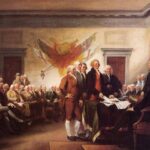The decision by the justices was overturned following a ruling against the lawmakers in a voting rights case. The new ruling by the Supreme Court nullified the previous decision by the U.S. Court of Appeals for the Eighth Circuit, which had granted state legislators in North Dakota legislative privilege against subpoenas. This ruling put them on par with federal lawmakers, claiming it was necessary for public servants to carry out their duties without fear of personal liability or constant litigation. The Supreme Court’s decision came after the Eighth Circuit ruled in favor of the state lawmakers, who were being pursued for communications related to a redistricting plan challenge. The tribe involved in the lawsuit argued that the plan diluted the voting power of Native Americans in North Dakota, violating the Voting Rights Act. Despite the Eighth Circuit’s ruling, a federal district court ruled in favor of the tribe on the Voting Rights Act claim, rendering the dispute over lawmakers’ communications irrelevant. The Supreme Court granted certiorari in the case and vacated the Eighth Circuit’s decision, instructing them to dismiss the case as moot. Justice Ketanji Brown Jackson dissented, while the Native American Rights Fund praised the ruling for preventing state lawmakers from being above the law.
In a brief statement, Burgum stated that the State cannot justify the district court’s decision, which implies that complying with the Voting Rights Act justifies racial discrimination.
The case reached the Supreme Court after Walen and another Republican voter sued, alleging that the redistricting plan unfairly favors Native Americans over other races.
On June 10, the Supreme Court requested U.S. Solicitor General Elizabeth Prelogar to submit a brief with the federal government’s perspective on the case, without specifying a deadline.





